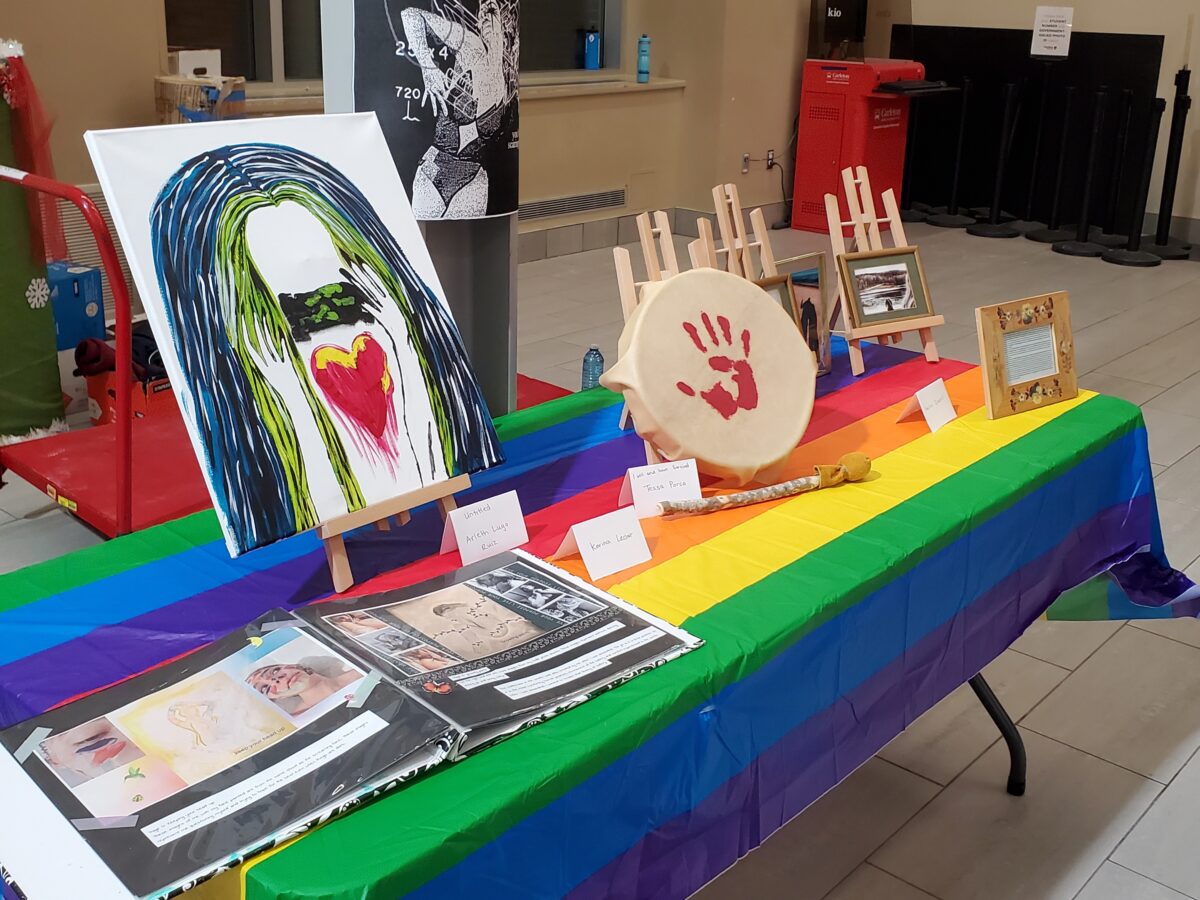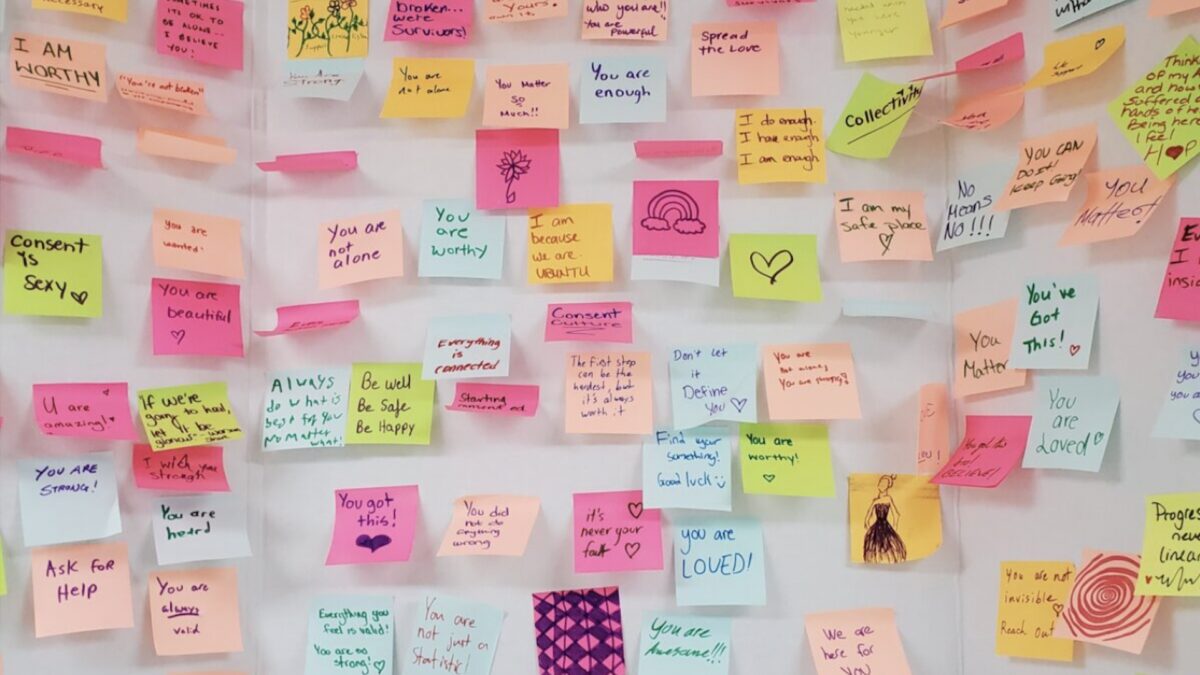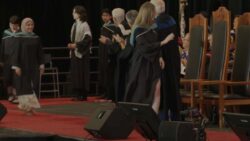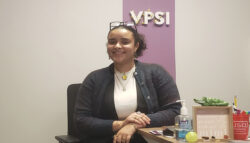On a recent Monday evening, a group of Carleton University students could be seen gathered excitedly in an exhibit space at the heart of the campus, writing sticky notes of encouragement and pasting them onto a bristle board display.
Some of the messages spoke of courage, others condemned stigma, but they all conveyed the importance of combatting sexual assault and supporting victims.
The exhibition marked the beginning of Sexual Assault Awareness Week at the university. The Carleton student association (CUSA) has recognized the week every January for more than 20 years in conjunction with the Wellness Centre, Women’s Centre and the Gender and Sexuality Resource Centre.
The events mark decades of on-campus activism and change heralded by CUSA and the university’s Feminist Institute of Social Transformation.
Fittingly, the week started with the “Expressions of Survivors and Allies Art Exhibit” hosted by guest speaker Yamikani Msosa, a black, neurodivergent, nonbinary member of Carleton’s alumni community.

Msosa is executive director at the Ottawa Coalition to End Violence Against Women and is the founder of SEEDS Yoga, a program for survivors of sexual and gender-based violence.
In hir remarks, Msosa emphasized the roles that institutionalized racism, homophobia, transphobia and sexism play in the trauma experienced by victims. Ze said that these institutionalized problems are a part of the reason why 95 per cent of sexual assaults are not reported to police — a statistic that has changed little despite increasing awareness about the issue of sexual assault through movements such as #MeToo.
The artwork showcased in the exhibit featuring paintings, collage books and other art inspired by the Anishinabe peoples.
The exhibit also featured an interactive piece on which attendees were encouraged to write their thoughts about sexual assault awareness on sticky notes. This piece remained up for an extended period at the CUSA Wellness Centre for students and visitors to participate in.
Emilia Peixoto, vice-president of student issues at CUSA, reiterated the exhibit’s message that sexual assault awareness is important on campus.
“I think it is such a beautiful way for people to express themselves — express their experiences, their stories,” Peixoto said. “Especially during this Sexual Assault Awareness Week, it’s a really great way for people who are survivors or even allies to look into what it means to be a survivor of sexual assault.”
Peixoto added: “For a lot of survivors, it’s very difficult to sum up the experience in words. And through the various pieces that we have here — even if they aren’t specifically made by survivors — they just showcase that it’s so intricate, the experience of going through something that is as traumatic as sexual assault.”
Peixoto added that she hopes the exhibit communicates that Carleton is a campus where sexual assault and harassment of any kind are not tolerated.
‘For a lot of survivors, it’s very difficult to sum up the experience in words. And through the various pieces that we have here — even if they aren’t specifically made by survivors — they just showcase that it’s so intricate, the experience of going through something that is as traumatic as sexual assault.’
— Emilia Peixoto, vice-president of student issues, CUSA
Those attending the exhibit expressed similar attitudes about the artworks and their message. Journalism student Natalia Konrad said that she felt empowered contributing to the sticky notes piece and appreciated Msosa’s talk.
“It was a really powerful opportunity to hear everyone’s stories and to feel united in all the things that we struggle with,” she said. “It can feel so overwhelming sometimes with all these problems surrounding us, but I think it’s very powerful when we all take the steps to understand why these problems occur and how we can try to combat them.”
Ryan Heinecke, a visitor to the campus who heard about the exhibition online, said that he was glad discussions about sexual assault and institutionalized problems are occurring on campus.
“There was a very different atmosphere about sexual assault back when I attended university,” he said. “I’m so glad that students nowadays are being empowered to go against stigma and speak up about the abuse they’ve experienced.”




